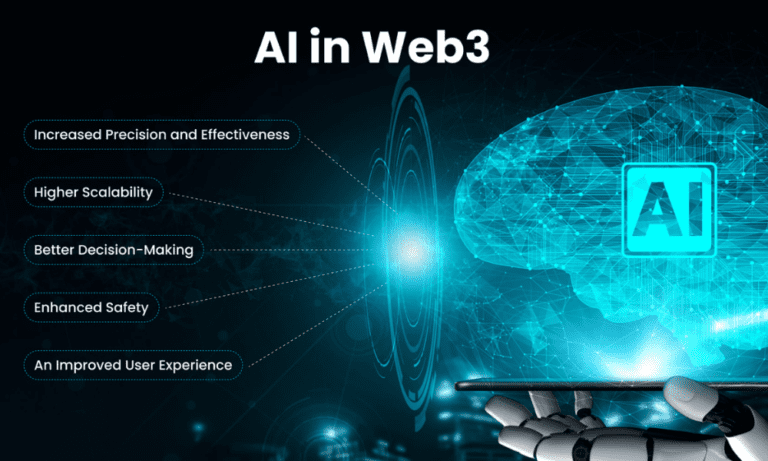
Introduction: AI as a Game-Changer in IT Service Delivery
Artificial Intelligence (AI) has emerged as a powerful force in reshaping IT service delivery. By automating routine tasks, predicting potential system failures, and providing real-time insights, AI enhances the efficiency and reliability of IT services. For companies seeking to maximize uptime and reduce operational costs, AI presents opportunities to transform how IT support is managed and delivered. No longer limited to basic automation, AI now powers predictive analytics, self-healing systems, and personalized user support. As a result, IT departments can shift from reactive to proactive support models, fundamentally improving service quality and response times.
Predictive Maintenance: Preventing Issues Before They Arise
Predictive maintenance leverages AI’s analytical capabilities to foresee potential system malfunctions before they become critical issues. Using data from sensors, logs, and past performance, AI algorithms can detect patterns indicating impending failures. This approach helps IT teams address problems before they impact productivity, reducing downtime and associated costs. In industries where continuous system availability is vital, such as finance or healthcare, predictive maintenance ensures smoother operations. Additionally, this model allows for resource optimization, as maintenance can be scheduled when it has minimal impact on operations. By predicting issues early, companies can maintain a high level of service reliability and avoid costly interruptions.
AI-Driven Automation: Reducing Human Intervention in Routine Tasks
Automation has always been a key aspect of IT service management, but AI enhances it by enabling more complex, decision-based processes. AI-powered automation can handle repetitive tasks like ticket management, software updates, and user onboarding, freeing IT staff to focus on more strategic work. Intelligent chatbots and virtual assistants are prime examples, as they can handle a large volume of queries, resolve simple issues, and guide users through troubleshooting steps. This shift not only improves efficiency but also ensures consistency in service delivery. Companies adopting AI-driven automation see reduced operational costs, faster response times, and improved user satisfaction, making it a cornerstone of modern IT service management.
Self-Healing Systems: Autonomous Detection and Resolution
Self-healing systems represent a significant advancement in AI-powered IT service delivery. These systems can detect anomalies in real-time and automatically take corrective actions, often before users are even aware of an issue. For example, if a system detects an overloaded server, it can reroute traffic or allocate additional resources to prevent performance degradation. By minimizing the need for manual intervention, self-healing systems reduce downtime and keep services running smoothly. This approach is particularly valuable in mission-critical environments where service interruptions can have severe repercussions. As self-healing systems continue to evolve, they promise to further enhance the resilience of IT infrastructure.
Personalizing User Support: AI-Powered Recommendations and Insights
AI enhances user support by enabling personalized recommendations and insights based on individual needs and preferences. Machine learning algorithms analyze user behavior, past interactions, and specific requirements to deliver tailored support experiences. For instance, AI-driven systems can recommend solutions or resources based on frequently encountered issues, streamlining the user experience. Personalization not only speeds up problem resolution but also fosters a more user-centric approach to IT support. This approach is especially valuable for large organizations where user needs vary widely across departments. By anticipating user requirements, IT service teams can provide proactive assistance, improving overall satisfaction and productivity.
Enhancing Cybersecurity with AI in IT Services
As cyber threats become more sophisticated, traditional security measures struggle to keep up. AI plays a crucial role in enhancing cybersecurity by identifying potential threats, detecting anomalies, and responding to attacks in real-time. Machine learning models analyze vast amounts of data to detect unusual patterns, allowing them to identify potential security risks faster than human teams. Additionally, AI-driven systems can automate responses to minor threats, ensuring rapid mitigation and reducing the risk of escalation. For businesses, this AI-driven security layer provides added confidence in their IT infrastructure, protecting sensitive data and maintaining trust with clients and stakeholders.
Case Studies: Real-World Applications of AI in IT Service Delivery
Real-world examples illustrate the transformative power of AI in IT service delivery. For instance, some financial institutions use AI-driven predictive maintenance to minimize downtime for their online banking platforms, while healthcare providers deploy AI-powered chatbots to handle patient inquiries and schedule appointments. Retailers use machine learning to anticipate spikes in customer traffic, adjusting their infrastructure to ensure seamless shopping experiences. These cases demonstrate the versatility of AI in addressing industry-specific challenges and underline how AI can enhance service delivery in ways that add measurable value to operations and customer experiences.
AI in IT Service Delivery: Challenges and Considerations
While AI offers substantial benefits, implementing it in IT service delivery isn’t without challenges. Issues such as data privacy, algorithm biases, and the need for substantial computational resources must be carefully managed. Furthermore, integrating AI into existing IT infrastructure requires a thoughtful approach to avoid disruption. Companies must also ensure their IT teams are equipped to manage and interpret AI-driven insights. Partnering with a knowledgeable IT service provider, like Infinity Solutions, can simplify this process by offering expertise in AI implementation and ongoing support. Successfully navigating these challenges allows companies to fully realize AI’s potential in IT services.
The Future of AI in IT Service Delivery
As AI technology advances, its role in IT service delivery will continue to expand. Future developments may include even more autonomous systems capable of handling complex service requests, more sophisticated cybersecurity measures, and fully integrated predictive analytics across all facets of IT management. Companies investing in AI today position themselves to harness these future innovations, ensuring they remain at the forefront of efficiency and innovation. By partnering with an IT service provider experienced in AI, businesses can leverage these technologies to create more agile, resilient, and user-centric IT services.



